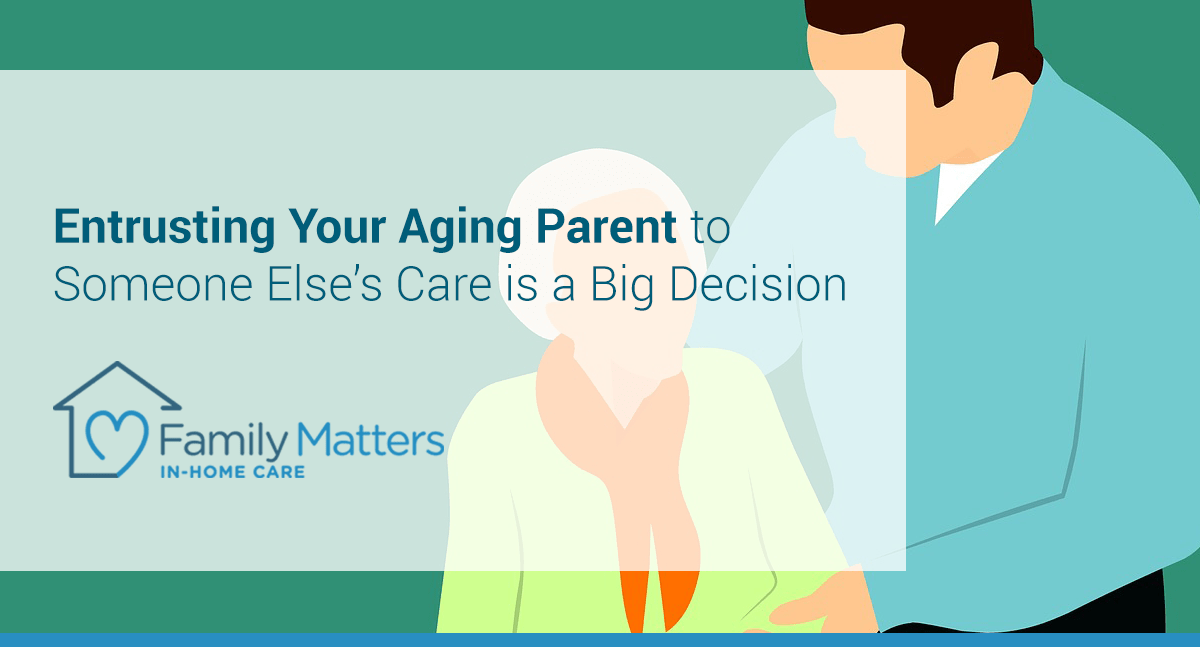
Entrusting Your Aging Parent to Someone Else’s Care is a Big Decision
How do you know who the right caregiver is? There are a few steps you can take to help make your selection confidently.
57% of seniors over age 70 do not find it very easy to live alone. Many need assistance with some daily tasks. If your parent is one of them and plans to age in place, it’s time to hire a caregiver. There are several steps to take to ensure your loved one receives the best care. (AARP)
First Steps to Take When Hiring a Caregiver
1. Understand Your Loved One’s Needs
The first thing you need to know is the kind of care your parent needs, and how often. Home care caregivers offer assistance with non-medical activities like bathing, cooking, transportation, or companionship. Create a list of specific activities your parent needs help with.
2. Assess Your Financial Options and Resources
Your finances may affect your caregiver options. Work out a budget for caregiving. Many non-profit and governmental programs offer financial assistance for the care of the elderly as well.
3. Choose an Agency
Many families use a home care agency because of the added security, accountability, and convenience. Consider factors such as how long the agency has been in business, their procedures for documenting and monitoring care, and how they train and hire caregivers.
4. Compile Your Requirements
The final step to take before beginning your caregiver search is compiling your requirements. If possible, create a list together with your loved one who will be receiving care. Include preferences about the caregiver’s gender, age, availability, and more. Mark non-negotiables, like that the caregiver speak a particular language, or have a driver’s license. Use this list to screen potential private caregivers or give it to the agency you select. (NPR)
What to Ask Potential Caregivers
Since you are entrusting a loved one to someone else’s care, you have every right to ask questions and to refuse to hire anyone who doesn’t meet your requirements. Use these questions to get started: (Care.com)
- Do you have any licensing or certifications?
- What is your home care experience?
- Why do you work as a caregiver?
- Do you have experience working with certain illnesses/injuries?
- How do you protect your health as a caregiver?
- Are there caregiving activities you will not perform?
- Can you provide a previous client as a reference?
- May I speak to your references?
Don’t Forget…
If your parent is capable of making decisions or if other family members are also responsible for a parent’s care, those individuals should be consulted. Schedule times to make final decisions together. Establish processes for clear lines of communication with the agency to ensure visibility into your loved one’s care. (US News)
If you or your family member is considering in-home care as part of a plan to age in place, contact Family Matters In-Home Care today for a free consultation. Our team is dedicated to supporting your family and helping older adults enjoy life in the comfort of their own home for as long as possible.
Some of the services offered by Family Matter In-Home Care include: Alzheimer’s & Dementia Care, Bed & Wheelchair Transfer Assistance, Companionship, Housekeeping & Meal Preparation, Personal Care, Recovery Care, and Transportation.
 This post is courtesy of ClearCare, an all-encompassing web-based solution, empowering private-duty home care agencies to operate efficiently and grow while solving one of the biggest healthcare and economic challenges of our time.
This post is courtesy of ClearCare, an all-encompassing web-based solution, empowering private-duty home care agencies to operate efficiently and grow while solving one of the biggest healthcare and economic challenges of our time.
